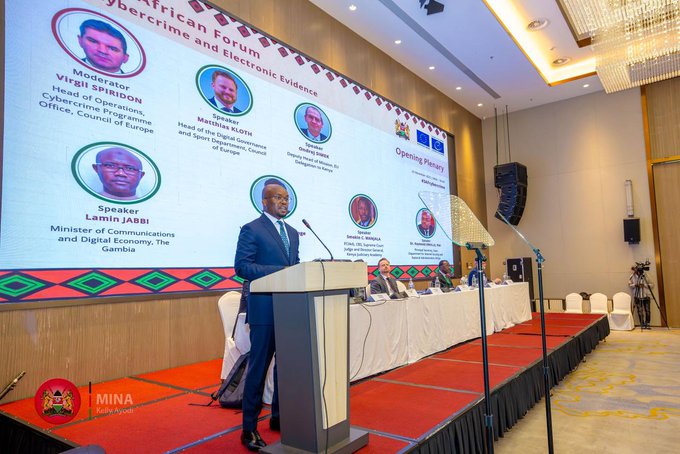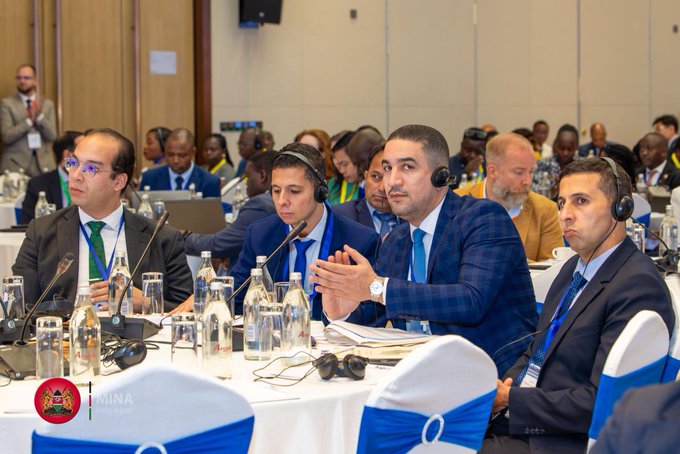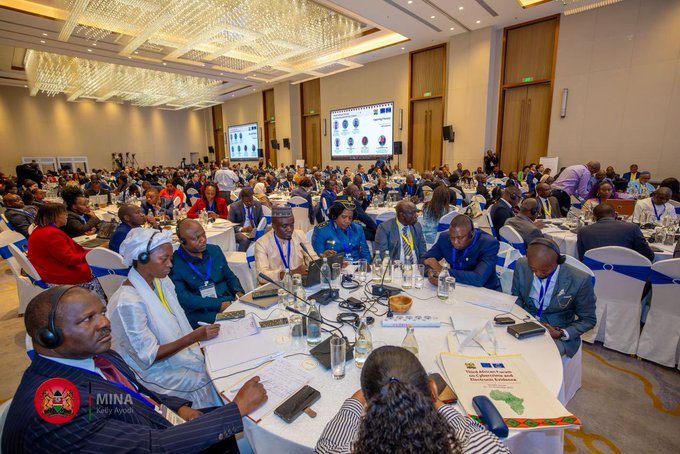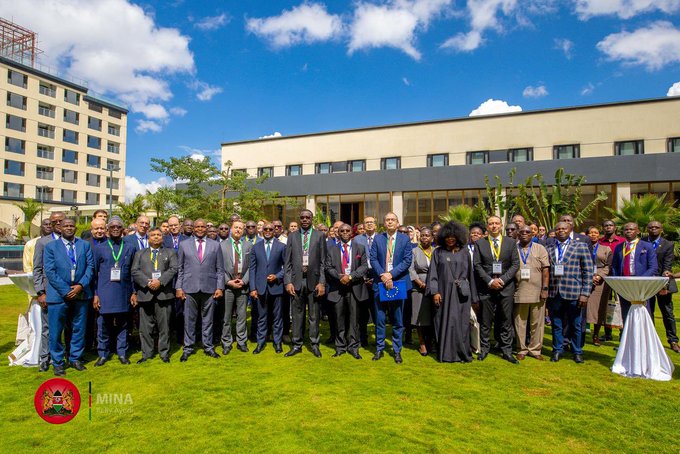NAIROBI, Kenya – Kenya’s accelerating digital transformation is driving economic growth but also exposing the country to a surge in high-impact cyber threats, Interior Principal Secretary Dr. Raymond Omollo has warned.
Speaking during the official opening of the Third African Forum on Cybercrime and Electronic Evidence, Dr. Omollo said Kenya now ranks among the top 10 fastest-growing digital economies globally, powered by widespread smartphone penetration and the rapid expansion of online government services.
More than 40 million smartphones currently access about 80 percent of public services, a shift propelled by President William Ruto’s digitisation agenda.
Dr. Omollo cautioned that the same progress has created fertile ground for increasingly sophisticated cybercrime.
He cited a sharp rise in financial fraud, ransomware attacks, online child exploitation, disinformation campaigns and attempts to breach e-governance systems.
“Africa is losing over $4 billion annually to cybercrime. These attacks are becoming more sophisticated, more destructive, and more transnational,” he said.
He said cyberattacks have become borderless, with criminals capable of launching disruptive operations from thousands of miles away and destabilising institutions within seconds.
Online anonymity, he added, remains one of the biggest obstacles to investigations, accountability and the enforcement of cyber laws.
To counter emerging risks, Kenya is deepening cooperation with international partners and modernising its legal and technological defences.
Presided over the official opening of the Third African Forum on Cybercrime and Electronic Evidence, where I highlighted Kenya’s rapid digital transformation, now among the ten fastest-growing digital economies globally.I noted the rising complexity of cyber-enabled crimes
Amendments to the Computer Misuse and Cybercrime Act and the Virtual Asset Service Providers Act, alongside growing collaboration with Europe and other global actors, are enhancing the country’s capacity to protect critical information infrastructure and handle digital evidence more reliably.
Dr. Omollo said secure, rights-respecting digital identity systems will be key to balancing privacy with lawful tracing of cybercrime.
He stressed the need for stronger cross-border cooperation, adherence to due process and greater engagement of young people in cybersecurity efforts.
With Kenya’s median age at 19, the PS warned that the country’s youth — among the most digitally active in Africa — are also among the most vulnerable.
He said many young users underestimate the risks posed by data harvesting, misinformation, identity theft and online exploitation, calling for urgent investments in awareness, digital literacy and online safety.
Dr. Omollo emphasised that cybersecurity can no longer be left to government alone.
“The resilience of our digital ecosystem will depend on how well we collaborate — across borders, across sectors, and across generations,” he said.







